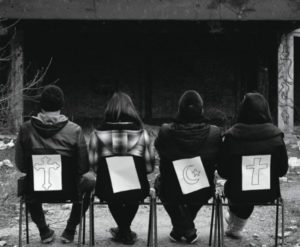Often, when certain countries from Southeastern Europe are mentioned outside of Europe—Croatia, Bosnia, Serbia, or Kosovo, for example—people’s only associations are the brutal wars that ended almost two decades ago.
In reality, much has happened since that time; today in the young countries that once made up Communist Yugoslavia there are many confessing Christians who are actively engaging society, working toward the communal good, forming relationships across religious, ethnic, and political lines—and striving to bear witness to Christ as they do so. Still, the current socio-economic and political challenges—high unemployment, economic crises, and corruption across various sectors of society—present ongoing challenges for all Christians who see themselves having a role in maintaining peace and working towards the good in their societies. Such a posture cannot be maintained without fostering living relationships through dialogue across ethno-religious lines.
One of the most significant hurdles for peacemaking and dialogue is the issue of identity; how one understands oneself in relation to others can be a historically loaded process that can usher in either transformation and peace or stalemate and conflict. In this, evangelicals have the potential to play a constructive role in Southeastern Europe as their Christian identity is not tied to state or ethnicity, which can be a source of antagonism and division. As they wrestle with these issues in their own societies, their experiences can contribute to greater understanding for the global church about the role of identity in the dialogue and peacemaking process. In this issue, we are privileged to hear evangelical, Catholic, and Orthodox perspectives from Croatia, Bosnia and Herzegovina, Serbia, and Macedonia that speak directly from their local contexts. Their responses illustrate the possibilities and challenges that evangelicals encounter as they pursue the flourishing of societies in this context.
Summary Statement
The essays in this edition of the journal each take up a basic question: in what ways can Christians living in the countries of former Yugoslavia contribute to the peace of their societies? The two images by artist Marko Podgorščak (front and back covers) help us feel the socio-religious barriers that exist today. Amidst such tensions, Christians from all traditions must reflect on their ethnic, national, and religious identities in order to overcome the past and embody a faithful witness in their societies.
Further Reading
Theological
- Miroslav Volf, Exclusion and Embrace (Abingdon, 1998).
- Miroslav Volf, The End of Memory (Eerdmans, 2006).
Sociological/Historical
- Vjekoslav Perica, Balkan Idols: Religion and Nationalism in Yugoslav States (Oxford University Press, 2002).
Historical
- Misha Glenny, The Balkans (Penguin Books, updated version 2012).
War Specific
- David Manuel, Bosnia: Hope in the Ashes (Lorenz Books, 1996).
- Misha Glenny, The Fall of Yugoslavia (Penguin Books, 3rd edition, 1996).

